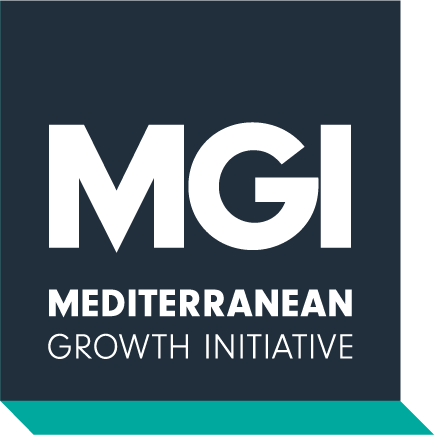MGI Weekly round-up | 6 October 2017
Stories MGI has been tracking this week:
- Libya's commercial port reopens after 3-year closure
- Despite high inflation Ergodan reiterates unorthodox inflation - interest rate view
- Spain’s borrowing costs increase amid Catalonian crises
And as always, we feature content from the MGI data and analysis platform, a summary of the week’s key statistical releases, and a look to the week ahead in data. In this newsletter, we use the MGI platform to examine the historical evolution of inflation in Turkey.
Libya’s commercial port reopens after 3-year closure
After a three-year closure – caused by fighting in the city – Benghazi’s commercial port was officially reopened on Sunday. The port does not export oil, but imports gas and some petroleum products and general cargo. The port’s reopening is expected to lower local costs for these, port spokesman Nasser Al-Maghrabi said.
The port and the airport of the city had been closed since 2014 due to conflict between forces loyal to eastern-based commander Khalifa Haftar – which declared victory in July – and an alliance of Islamists and other opponents. Benghazi’s international airport officially reopened in July this year.
Despite high inflation Ergodan reiterates unorthodox inflation - interest rate view
In a speech delivered on Tuesday, the Turkish president Ergodan reiterated his unorthodox stance on the link between inflation and interest rates, despite Turkey’s high inflation. “High interest rates will never bring down inflation…. The current view is that they are inversely proportional. No, they are not. We have seen this”. The speech came hours after the latest data for inflation was announced. In September, core and headline inflation rose by 11% – the highest since 2004 – and 11.2%, respectively. The president expressed his discomfort with lending costs which stand at the highest level in at least six years.
According to Nomura economist Ianan Demir the speech might had been an attempt to prevent a further tightening in monetary policy. In addition, while high core inflation and the import boom represent strong reasons for tighter policy, no policy changes will take place unless the pressure on Turkey’s currency intensifies, Demir said.
Earlier this year, Turkey’s Central Bank raised interest rates to support the national currency. While the lira has stabilized, it is still roughly 20% lower compared to a year ago relative to a USD and EUR currency basket. This is pushing up prices for both consumers and producers, Bloomberg reports. According to the last Central Bank’s release on interest rates, the monetary authority is committed to continuing with a tight monetary policy until the inflation outlook improves significantly and “if needed further monetary tightening will be delivered”.
Spain’s borrowing costs increase amid Catalonian crisis
Spain’s borrowing costs increased by 7 bps to 1.8 – the highest level since March 2017. These developments followed the Catalonian leader’s statement that the region will declare independence in days following Sunday’s referendum.
The cost of insuring exposure to Spanish debt via credit default swaps also rose whereas the Benchmark equity index IBEX fell almost 3% – the biggest drop since June 2016 when the British voted to leave EU. Spanish difficulties also reached Italy: the spread between Italian and German 10-year bond hit its highest level since June, standing at 182bps.
Featured content from the MGI.online data and analysis portal
The inflation rate (CPI based) in Turkey can be retrieved by using the MGI platform (https://www.mgi.online/natstats-key-indicators/). The graph contains all the available data for this indicator since January 2004.
Turkey experienced high inflation throughout the period - never falling below 4% and often exceeding 10%, as is the case today. While the Central Bank has reiterated its commitment to tightening policy until it hits the official target of 5%, President Erdogan is applying pressure for a laxer approach – going as far as publicly questioning whether there is a link between higher interest rates and lower inflation.
The week in data
Highlights from national statistics releases tracked by MGI this week include:
- Italy’s employment increased 0.2% (MoM) in August 2017. The unemployment rate stood at 11.2% (-0.2% over July 2017)
- Turkey's CPI in September 2017 increased 0.65% vs. August 2017 and 11.2% YoY
- Greece's unemployment rate stood at 21% in July 2017 (- 2.4% vs July 2016). Employment increased by 2.5% YoY
Looking ahead
In the coming week, we will see data for industrial production and inflation for several Mediterranean countries. MGI’s complete data release schedule can be viewed at https://www.mgi.online/release-calendar/.
Monday 9 October, 2017:
- Turkey IPI and retail sales for August
- Malta IPI for August
- Israel budget balance for September
- Albania inflation rate for September
- Albania business and consumer confidence for 2017Q3
- France 3-month, 6-month and 12-month BTF auction
- Croatia unemployment rate and employment for 2017Q2 (detailed data)
Tuesday 10 October, 2017:
- Egypt inflation rate and core inflation rate for September
- France IPI for August
- Italy IPI for August
- Slovenia IPI and balance of trade for August
- Spain 6-month and 12-month Letras auction
- Cyprus balance of trade for August
- Greece harmonized and domestic inflation for September
- Greece IPI for August
- Malta balance of trade for August
- Montenegro inflation rate for September
- Tunisia balance of trade and PPI for August
- Israel money supply (M1) for September
Wednesday 11 October, 2017:
- Spain harmonized and domestic inflation for September, final estimate
- Turkey current account for August
- Malta harmonized inflation rate for September
- Italy 12-month BOT auction
Thursday 12 October, 2017:
- France harmonized and domestic inflation for September, final estimate
- Palestinian Territories inflation rate for September
- Italy 3-year, 7-year and 30-year BTP auction
Friday 13 October, 2017:
- Italy harmonized and domestic inflation for September, final estimate
- Tunisia IPI for August
- Malta inflation rate (retail price index based) for September

